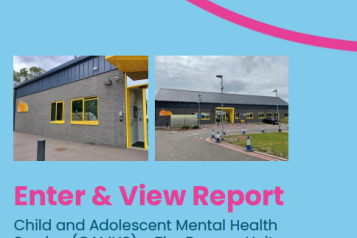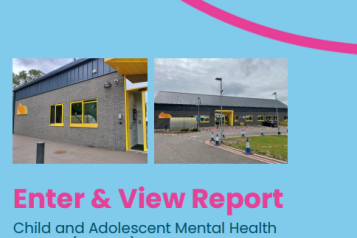People with ADHD find diagnosis life-changing but long waits on the NHS need urgent action

Healthwatch England commissioned the poll with 2,579 adults living in England to explore people’s experiences and impacts of possible ADHD and of getting an ADHD diagnosis. All respondents were either diagnosed with ADHD or thought they had it.
ADHD is a neurodevelopmental condition, characterised by difficulties with concentration, energy levels, impulsiveness, or a person’s ability to manage their time.
People reporting experience of ADHD traits note significant impacts on their mental health, studies, work, and relationships.
Healthwatch England conducted the survey following concerns about access to ADHD services raised by local Healthwatch and the public.
Out of 363 respondents who have already been diagnosed, most people agreed their diagnosis improved many aspects of their lives:
- The vast majority of the respondents, 84%, said it helped them understand their behaviour and how their brain works.
- For over half, 58%, it helped them find new strategies to manage traits, while the same number agreed it helped them look after their mental health and wellbeing.
- Over half, 54%, agreed that being diagnosed for ADHD improved their self-esteem, and 47% agreed it helped them concentrate at work or while studying.
- A third, 30%, agreed they found budgeting and managing their finances easier.
Despite the wide-ranging benefits of ADHD diagnosis, one in five, 21% of people said they had a negative experience of the process from referral to diagnosis, while 17% said it was neither positive nor negative.
Seven in ten, 70%, of those who have been diagnosed said that they found the length of the process between referral and diagnosis difficult.
And almost two-thirds, 64%, of people with an ADHD diagnosis said they received either no information or poor information whilst waiting for diagnosis.
Of the people who responded to the poll and who are currently waiting for an assessment, nearly half, 45%, had been waiting for over a year, and 10 per cent of these for three years or more.
Healthwatch England’s report, "Recognising ADHD: How to improve support for people who need it" highlights that long waits for an ADHD assessment on the NHS put people off seeking any support.
Of all respondents, 963 people, 41%, said they didn’t seek a formal ADHD diagnosis, with 20% of this group citing long waits as a reason.
There is no official data on how many people are waiting for ADHD assessments. A recent BBC investigation suggested that at least 196,000 adults were on NHS waiting lists for ADHD assessments.
Healthwatch England has set out four priorities for the Department for Health and Social Care, NHS England and other stakeholders, including collecting data on waiting times to understand demand, shifting more ADHD care to community care to reduce waiting times, better training for staff in both primary and community care, and tailored information and support for people on waiting lists.


